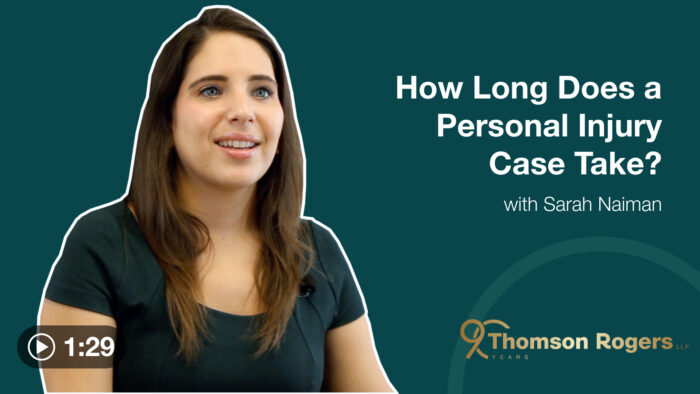Issues Relating to Patients Who Lack Legal Capacity to Make Their Own Choices
Author(s): David A. Payne
October 14, 2016

The purpose of this paper is to not only alert the reader to the legal test for capacity and the accompanying requirement of a guardian but to hopefully instruct on when a guardian is not required, thereby allowing the ABI sufferer to maximize their own independence and quality of life.
Legal Test for Guardianship: Property
Individuals who have reached the age of majority (18) are governed by the Substitute Decisions Act, S.O. 1992, c. 30. It presumes all adults have the capacity to manage their property and their person.
The Substitute Decisions Act requires a guardian of property be appointed for an individual determined to be “incapable of managing property”.
Section 6 of the Substitute Decisions Act, defines a person incapable of managing property as follows:
A person is incapable of managing property if the person is not able to understand information that is relevant to making a decision in the management of his or her property; or is not able to appreciate the reasonably foreseeable consequences of a decision or lack of decision.
What does this mean?
Depending on one’s point of view, this definition of incapacity could apply to every individual travelling up Highway 400 every day to Casino Rama.
Obviously, these individuals do not need legally appointed Guardians of Property.
It is instructive to review some of the cases in this regard. In 1997, Justice Quinn of the Ontario Court of Justice in St. Catharines heard an appeal by Ms. Linda Koch from a tribunal that ruled she was incapable of managing her financial affairs and property. Justice Quinn stated:
It must be remembered that the appellant has the right to spend her money foolishly if she desires. The right to be foolish is an incident of living in a free and democratic society.1
Justice Quinn went on to state:
It is the mental capacity of Ontario residents that is the test, and not wisdom. The right knowingly to be foolish is not unimportant; the right to voluntarily assume risks is to be respected. The state has no business with meddling with either. The dignity of the individual is at stake.
The Supreme Court of Canada has also given some guidance concerning the test for capacity. In the 2003 decision, Starson v. Swayze, the Supreme Court of Canada stated that the test is solely to adjudicate on the individual’s capacity. The court’s “conception of the patient’s best interest is irrelevant to that determination”. As the reviewing judge observed “a competent patient has the absolute entitlement to make decisions that any reasonable person would deem foolish”.2
The Supreme Court stated that the test for competence requires the individual “to have the ability to appreciate the consequences of a decision. It does not require actual appreciation of those consequences. The distinction is subtle but important.”3
The Supreme Court of Canada went on to state that a finding of incapacity to manage property is justified only if there are reasons and facts that demonstrate an individual’s disability prevents him or her from having the ability to appreciate the foreseeable consequences of the decision.
It is improper for the court to allow its own conception of an individual’s best interest to influence its findings.
This philosophy is also expressed by the Ministry of the Attorney General in its published Guidelines for Conducting Assessments of Capacity. It states:
Ideally, vulnerable individuals will have access to a multiplicity of services and social supports, which optimize functioning and assist with decision-making. Guardianship, as a legal option, should only be used as a last resort when existing supports become inadequate or a legally authorized intervention would bring substantial benefits to the incapable person. In fact, the Substitute Decisions Act specifically prohibits the court appointment of a guardian if less restrictive alternatives exist.4
Read full paper: Issues relating to patients who lack legal capacity to make their own choices
1 Koch (Re) [1997] O.J. 1487, p. 24 at paragraph 64
2 Starson v. Swayze [2003] S.C.J. No. 33, p. 24 at para. 76
3 Ibid, para. 80
4 Guidelines for Conducting Assessments of Capacity, Ministry of Attorney General, May 2005.
Share this






